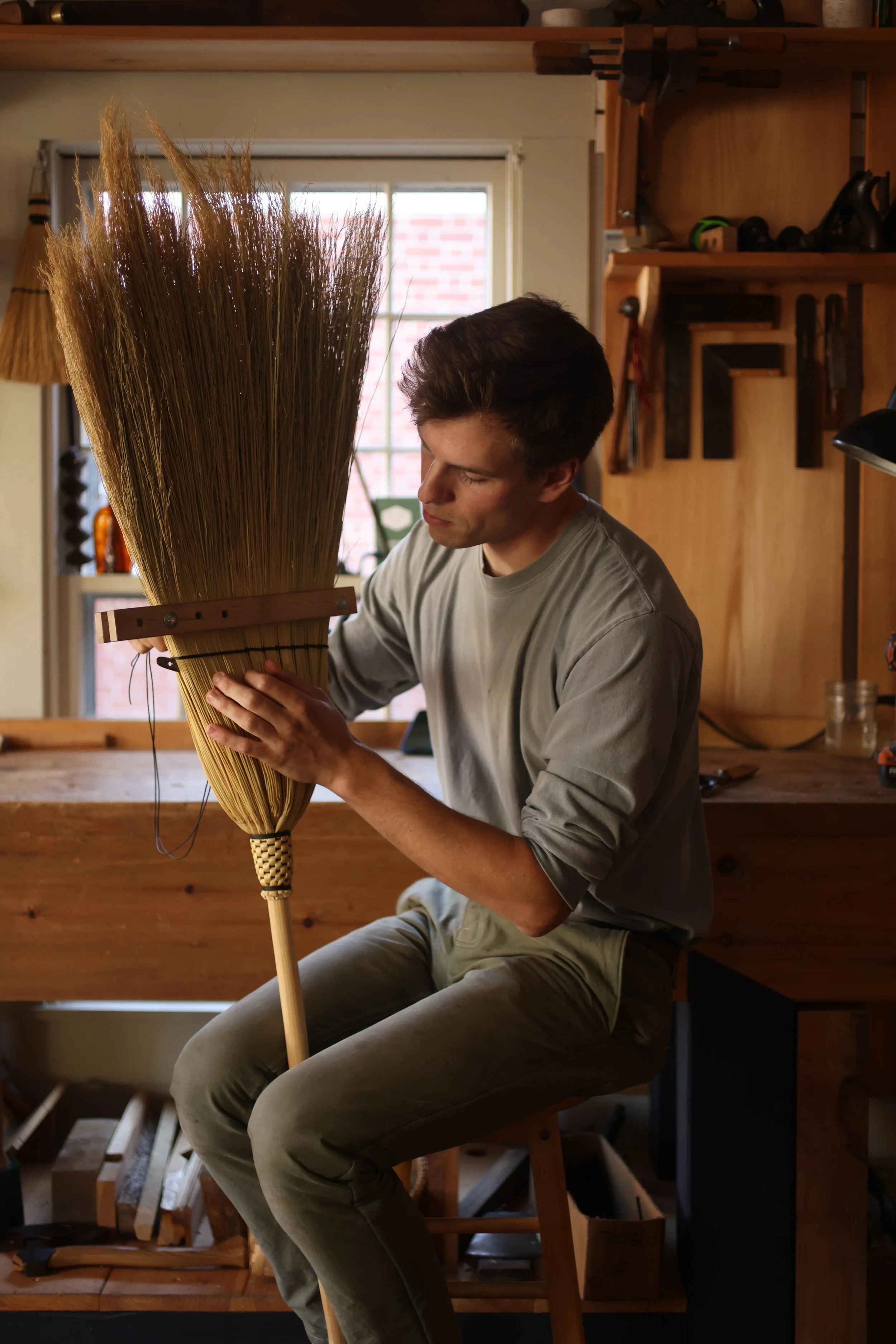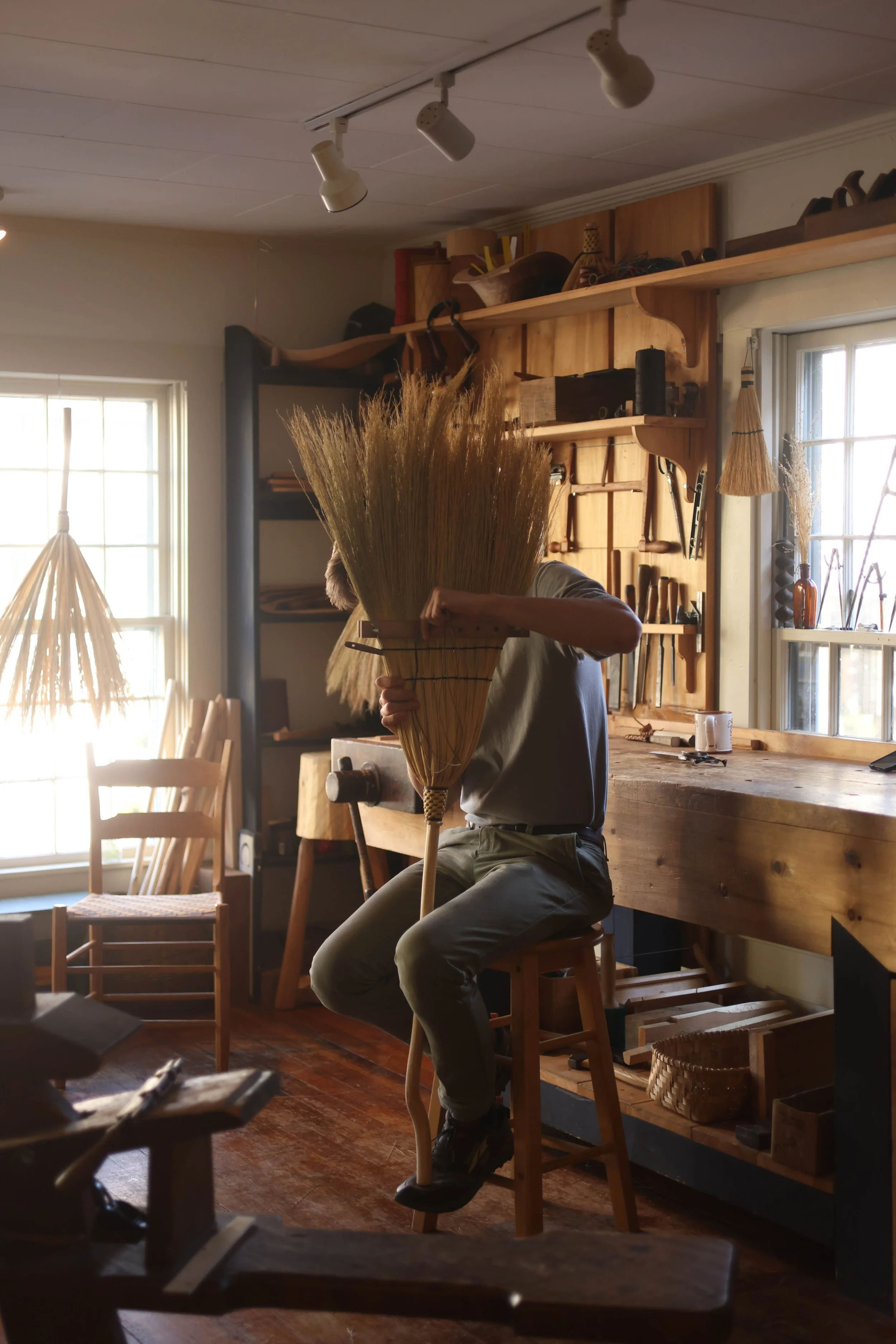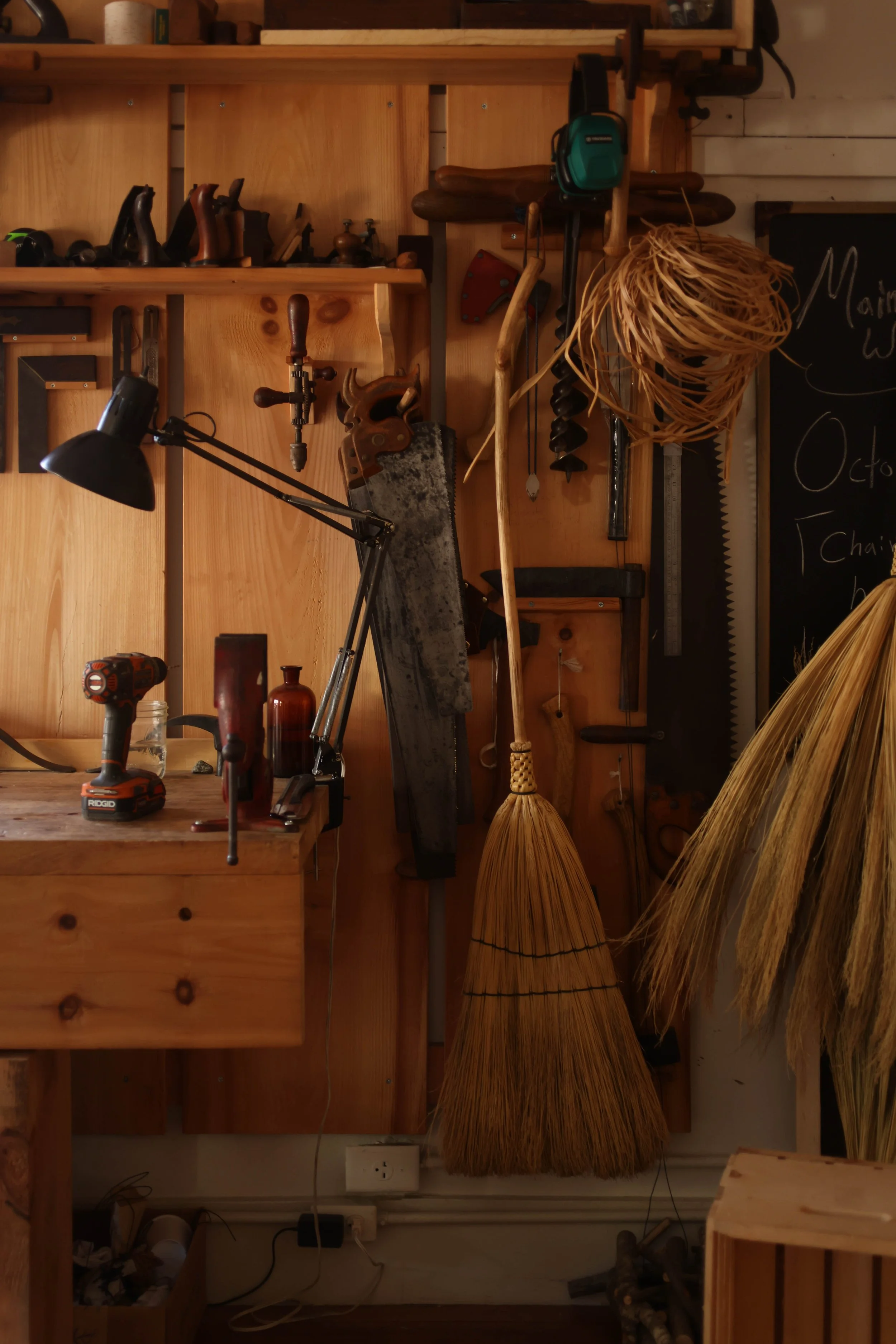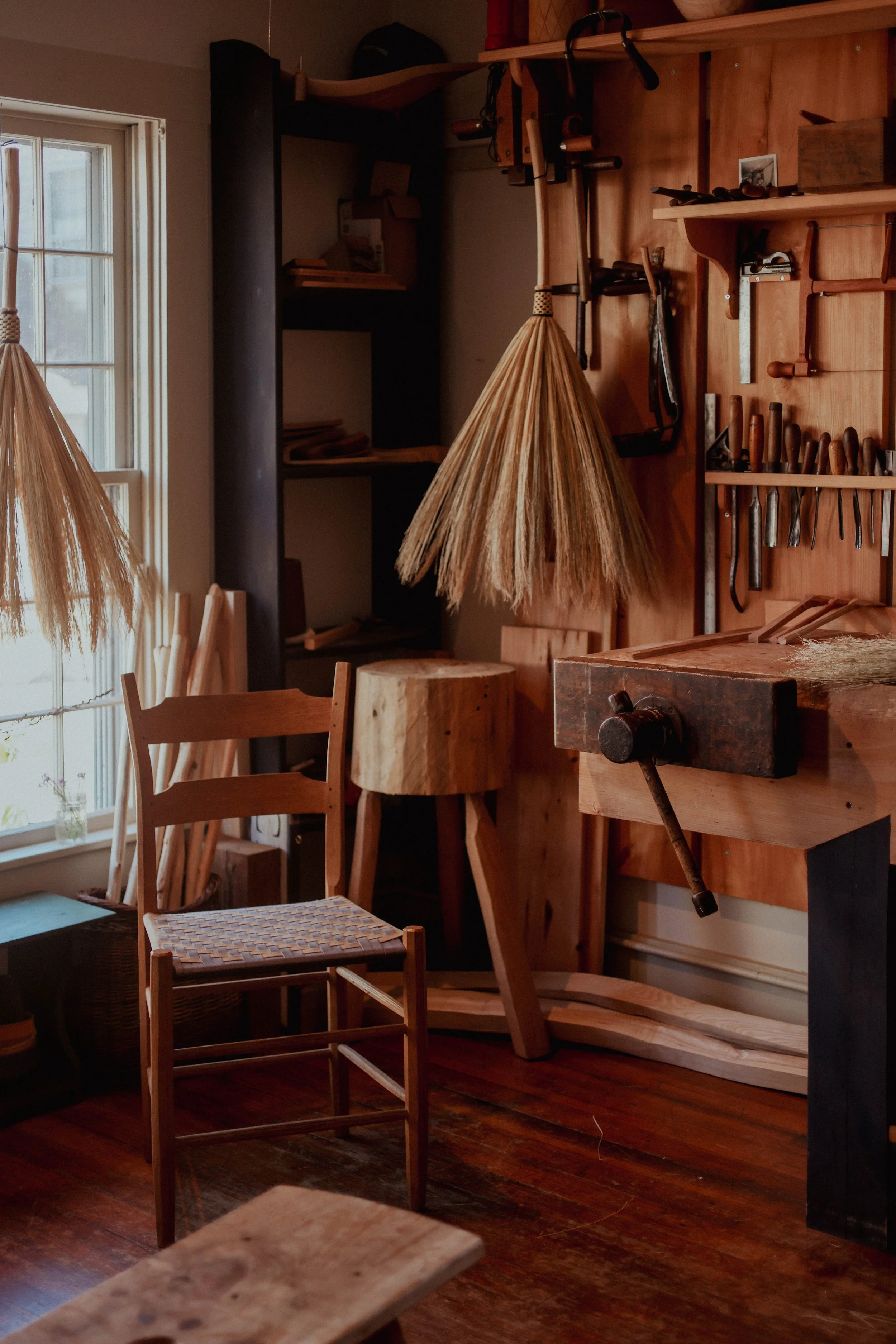It Takes a Village — Eric McIntyre
Ben Ashby
a visit to the Wiscasset, Maine studio of Eric McIntyre
In the small town of Wiscasset, Maine, just off the rugged coastline, you’ll find a storefront that’s part workshop, part classroom, part living room. It hums not with the whir of machines, but with the steady rhythm of hand tools, the scent of wood shavings, and the quiet presence of someone deeply invested in making — and in connecting.
That someone is Eric McIntyre.
“I’m a curious human who loves handwork, hand tools, nature, a good lake dip, and sharing skills with friends and community members,” he says with a smile. His studio is a space where beauty is carved, bound, and swept into being — often literally. McIntyre shapes natural materials into everyday tools like spoons and brooms, items we often overlook, but in his hands, they become functional art. “I design for joy in daily use,” he explains. “People should want to clean, should want to cook, because the tools they use bring pleasure just in holding them.”
This desire to bring delight to the everyday is not just a creative mission — it’s a personal philosophy.
A MAKER’S PATH, ROOTED IN MESSES
McIntyre’s journey to Maine wasn’t plotted. In 2017, he came to lead a sea kayaking trip and never left. “If I was going to do what I’ve ended up doing, I knew I wanted to be in a small town,” he says. “I just didn’t know it would be this one.” That serendipitous arrival turned into a deeply rooted life in Wiscasset, where a downtown storefront has become both his workshop and a hub of community craftsmanship.
Brooms became a defining part of his practice not by plan but by necessity. “I make brooms because I make messes,” he laughs. After years of woodworking, a handmade broom at the Maine Coast Craft School — where he once interned — lit a spark. “It took another year of mess making and woodworking before I finally dove in to try one. Since then, I’ve made hundreds and hundreds.”
The work is simple, in theory: a bundle of broomcorn bound to a sapling handle. But in Eric’s hands, it’s a meditation on care, intention, and usefulness. “Bound on a sapling handle, there’s really nothing better for cleaning the home or the shop,” he says. “And it turns out just about everybody makes messes.”
HUMANITY IN IMPERFECTION
Being a maker in today’s world, Eric believes, is more important than ever. “We need humanity and imperfection in our daily lives,” he says. “People walk into my shop and I see it — the relief. The delight. The tactile work, the surfaces worked by hand, the messes and the making — it touches something deeper.”
That deep connection to process and place is what gives Eric’s work its soul. He’s not just crafting objects — he’s rebuilding bridges of trust, one handmade broom or spoon at a time.
The trust shows up in how he runs his business, too. “If someone forgets a wallet, I’ll let them take the item and pay later. If I ship something, I invoice after it’s arrived. That trust makes people feel good. It changes the dynamic. It reminds us we’re still capable of believing in each other.”
It’s a lesson passed down from Emmet, a mentor who taught Eric the quiet power of creating systems that build trust in the world. It’s also a philosophy mirrored by other mentors who have shaped Eric’s path — from blacksmithing and woodworking teacher Ted Wesemann, to Kenneth Kortemeier, co-founder of the Maine Coast Craft School. “Kenneth taught me to stay open to possibility,” Eric reflects. “To be willing to stop everything to wonder at something amazing.”
LIVING IN RHYTHM WITH THE SEASONS
Eric’s small-town life is not just a backdrop — it’s integral to his practice. “I didn’t think too hard about where I landed. But over time, I realized this is exactly where I need to be.” His workshop is a place where people don’t just buy — they see the making. “That visibility changes things. It makes the goods they purchase feel more meaningful.”
Being part of a tight-knit community has taught Eric to invest deeply — not just in his own work, but in others. “Talk to people. Build relationships. Help others get more connected. We gain nothing by staying siloed.”
This interconnection flows into every broom, spoon, and piece of furniture he makes. And while Eric’s hands are always busy, his heart is just as present. “I’ve carved so many spoons, and still, every batch teaches me something new. I’m learning to align my pace to the seasons — to live and work in rhythm with the natural world around me.”
WHAT’S NEXT? KEEP GOING. KEEP MAKING.
Looking ahead, Eric isn’t chasing the next big thing — he’s deepening into the life he’s already built. “I want to keep doing what I’m doing. Maybe some furniture. More exploration. A house build in the coming years. But right now, I’m feeling jazzed just to keep going.”
That steady joy, that commitment to human-scale making and quiet trust — it’s what defines Eric’s work, his town, and the humble, beautiful world he’s crafting day by day.







